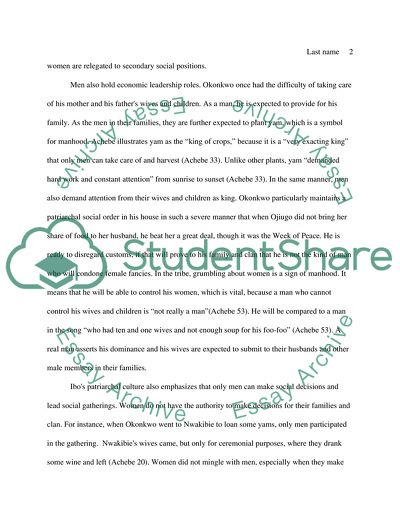Cite this document
(“Men and their Yam, Women and their Cooking in the Book Things Fall Essay”, n.d.)
Retrieved from https://studentshare.org/literature/1584810-men-and-their-yam-women-and-their-cooking-in-the-book-things-fall-apart
Retrieved from https://studentshare.org/literature/1584810-men-and-their-yam-women-and-their-cooking-in-the-book-things-fall-apart
(Men and Their Yam, Women and Their Cooking in the Book Things Fall Essay)
https://studentshare.org/literature/1584810-men-and-their-yam-women-and-their-cooking-in-the-book-things-fall-apart.
https://studentshare.org/literature/1584810-men-and-their-yam-women-and-their-cooking-in-the-book-things-fall-apart.
“Men and Their Yam, Women and Their Cooking in the Book Things Fall Essay”, n.d. https://studentshare.org/literature/1584810-men-and-their-yam-women-and-their-cooking-in-the-book-things-fall-apart.


